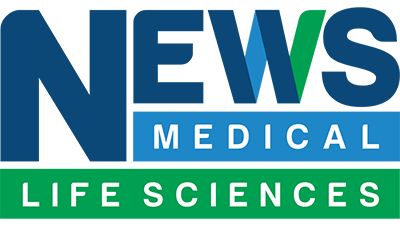
|
|
|
| |
Brought to you by

|
|
| |
The latest Biotech News and Views |
|
|
|
Brought to you by

|
|
| |
Good morning! It's difficult to predict where the wind will blow in Washington's health policies these days. This week, BARDA unveiled the $100M SMART Prize, a multi-stage competition to develop broad-spectrum small-molecule antivirals for Togaviridae and Flaviviridae viruses, including dengue, Zika, West Nile, and chikungunya.
Why it matters: The launch lands amid months of federal retrenchment on vaccines. HHS has cut mRNA programs, reshaped CDC vaccine advisory leadership, and openly questioned the future role of immunization. Making a major new antiviral push look, at best, orthogonal.
Bottom line: The U.S. may be cooling on vaccines but it's still investing heavily in infectious disease countermeasures. We'll take what we can get and hope that this commitment continues in the long term.
Enjoy today's read!
- Joachim E. |
|
|
| SNAPSHOT |
| Novo built the weight-loss drug boom but Eli Lilly is now winning it |
 |
| Eli Lilly's blockbuster earnings highlight surging growth in weight-loss drugs, while Novo Nordisk warns of declining sales and profits ahead, signaling a shift in market leadership. |
| Why it matters: Weight-loss drugs are one of the most lucrative pharmaceutical markets in decades. The GLP-1 race is no longer about who got there first, but more about pricing power, manufacturing scale, and resilience to policy and patent pressures. |
| Backstory: Novo Nordisk pioneered the modern GLP-1 weight-loss drug market with Ozempic and Wegovy, creating enormous demand and reshaping obesity treatment. Eli Lilly later entered the field with Mounjaro and Zepbound, intensifying competition. |
| Zoom in: Eli Lilly reported fourth-quarter sales up 43%, with earnings per share and net income rising 51% and 50% respecitvely; while gross margins hit an enviable 82.5%. Regarding Lilly´s main products, Mounjaro revenue jumped 110% globally to $7.4 billion, while Zepbound sales climbed 122% to more than $4 billion in the U.S. alone. |
| Yes, but: Novo Nordisk posted underlying operating profit growth of 13% and a 26% jump in weight-loss drug sales (excluding currency effects). The company secured FDA approval for the first oral GLP-1 obesity drug, a Wegovy pill, but management forecasts declining sales and profits in 2026 due to lower U.S. prices, health policy changes, patent expirations, and intensifying competition. |
| What's next: Lilly is poised to keep expanding production and market share, while Novo faces pressure to defend pricing, extend its pipeline, and offset patent losses. This divergence underscores a broader pharma lesson: innovation creates markets, but scale, margins, and policy insulation determine who ultimately wins them. |
|
|
| SNIPPETS |
| What's happening in biotech today? |
|
|
| Stem cell SPAC: PrimeGen US, a California-based stem cell biotechnology company, plans to go public via a merger with DT Cloud Star Acquisition, a Nasdaq-listed special purpose acquisition company (SPAC) that raised $69 million in its 2024 IPO. SPACs became an incredibly popular, albeit volatile, vehicle for biotech companies to go public between 2020 and 2022, offering a faster alternative to traditional IPOs. In the biotech sector, these "blank-check" companies are used to raise capital in an IPO, place it in a trust, and subsequently merge with a private biotech, bringing it onto public markets quickly. The transaction is expected to close in the second half of the year. PrimeGen is developing preclinical triple-activated mesenchymal stem cell therapies for acute liver injury and related conditions and recently engaged the FDA about advancing a candidate for acute alcoholic hepatitis into human trials. |
|
| Series A: AccurEdit Therapeutics, a Suzhou-based Chinese startup, has raised $75 million in Series A funding, bringing total financing to $116 million since its 2021 founding, to advance a growing pipeline of CRISPR-based medicines. The company has already tested in vivo gene editing therapies for transthyretin amyloidosis and familial hypercholesterolemia in about 40 patients, reporting efficacy and safety comparable to or better than U.S. peers, and is pursuing a potentially first-in-field permanent gene editing approach for MASH targeting HSD17B13. |
|
| Pros and cons: Amgen reported mixed clinical updates, with progress in lupus offset by setbacks in gastric cancer. Daxdilimab, a monoclonal antibody acquired from Horizon Therapeutics, met its primary endpoint in a phase 2 trial for discoid lupus erythematosus, significantly reducing disease severity and showing acceptable safety, prompting plans to advance development. The result contrasts with the drug's earlier failure in systemic lupus and Amgen's broader past struggles in the indication, though additional lupus trials are ongoing with other assets. In contrast, Amgen halted development of its gastric cancer antibody bemarituzumab after multiple trials failed to meet efficacy expectations, opting to reallocate resources to other late-stage programs. |
|
| Indication expansion: Cereno Scientific has expanded the clinical scope of its investigational small-molecule therapy CS014, initially developed for idiopathic pulmonary fibrosis, to also include patients with pulmonary hypertension associated with interstitial lung disease in an upcoming phase 2 trial. CS014 is an HDAC inhibitor designed to address fibrosis, inflammation, and vascular remodeling, and has shown safety and favorable exposure in phase 1 testing. The expansion aims to strengthen clinical relevance amid growing competition following recent approvals in fibrotic lung disease. Alongside CS014, Cereno continues to advance its lead asset CS1 in pulmonary arterial hypertension, with a phase 2b trial planned for 2026. |
|
|
|
| TOUR OPERATOR |
| Upcoming events |
| Amsterdam, 3-4 March 2026 – BioCapital |
| Barcelona, 10-12 March 2026 – Bioprocessing Summit Europe |
| Utrecht, 26 March 2026 – Innovation for Health |
| Vienna, 27-30 March 2026 – BioProcess International |
| Munich, 17-21 April 2026 – ESCMID Global |
| San Diego, 17-22 April 2026 – AACR Annual Meeting |
| Leipzig, 21-22 April 2026 – German Biotech Days |
| Shanghai, 28-29 April 2026 – ChinaBio |
| Riyadh, 11-13 May 2026 – BIO Middle East |
| Berlin, 09-11 June 2026 – bio:cap |
|
|
|
|
| Disclaimer: The opinions expressed here are the views of the writer and do not necessarily reflect the views and opinions of News Medical or AZoNetwork. |
|
|
|
| |
|
|
|
|
|
|
|